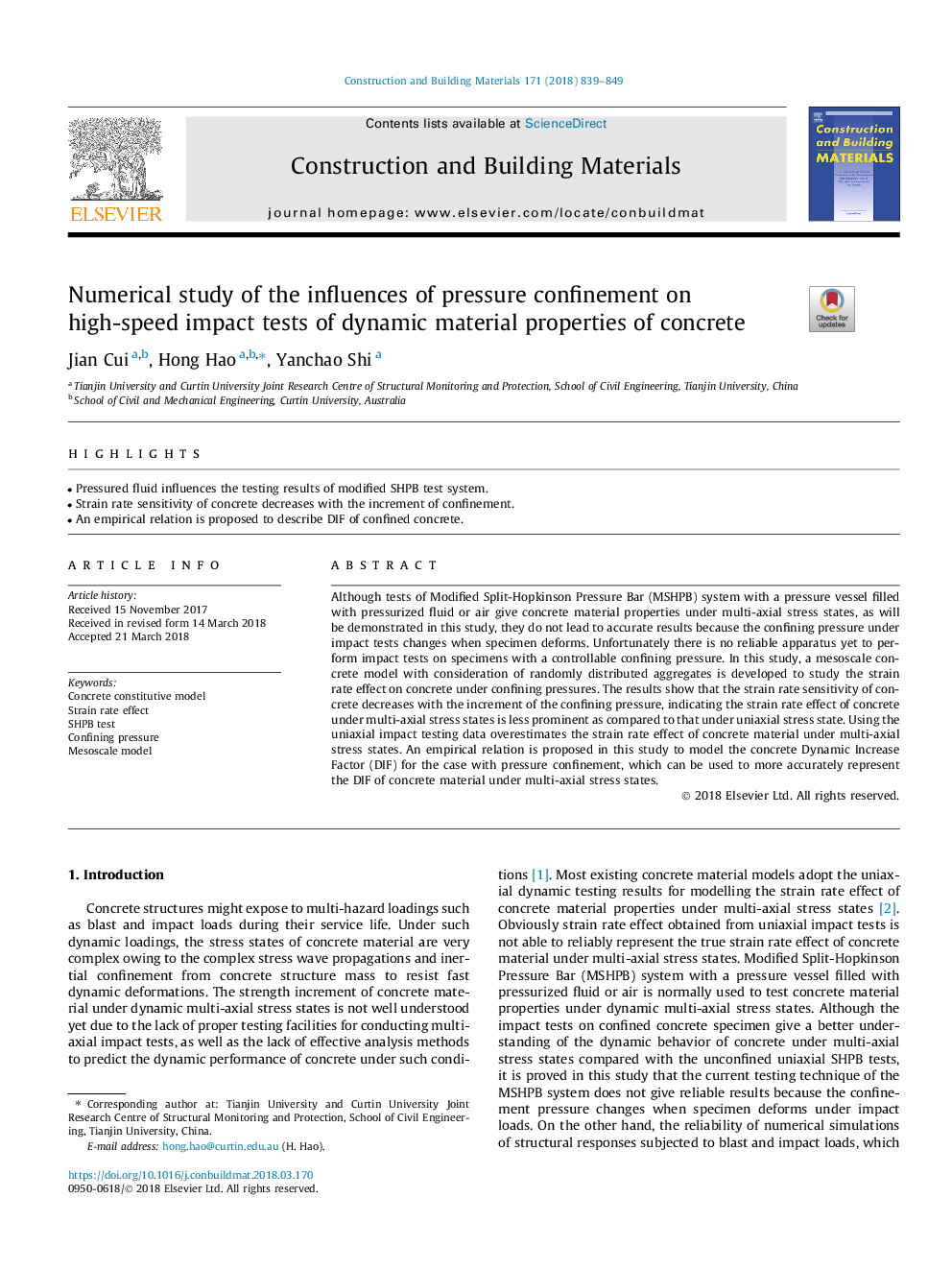| Article ID | Journal | Published Year | Pages | File Type |
|---|---|---|---|---|
| 6714364 | Construction and Building Materials | 2018 | 11 Pages |
Abstract
Although tests of Modified Split-Hopkinson Pressure Bar (MSHPB) system with a pressure vessel filled with pressurized fluid or air give concrete material properties under multi-axial stress states, as will be demonstrated in this study, they do not lead to accurate results because the confining pressure under impact tests changes when specimen deforms. Unfortunately there is no reliable apparatus yet to perform impact tests on specimens with a controllable confining pressure. In this study, a mesoscale concrete model with consideration of randomly distributed aggregates is developed to study the strain rate effect on concrete under confining pressures. The results show that the strain rate sensitivity of concrete decreases with the increment of the confining pressure, indicating the strain rate effect of concrete under multi-axial stress states is less prominent as compared to that under uniaxial stress state. Using the uniaxial impact testing data overestimates the strain rate effect of concrete material under multi-axial stress states. An empirical relation is proposed in this study to model the concrete Dynamic Increase Factor (DIF) for the case with pressure confinement, which can be used to more accurately represent the DIF of concrete material under multi-axial stress states.
Related Topics
Physical Sciences and Engineering
Engineering
Civil and Structural Engineering
Authors
Jian Cui, Hong Hao, Yanchao Shi,
